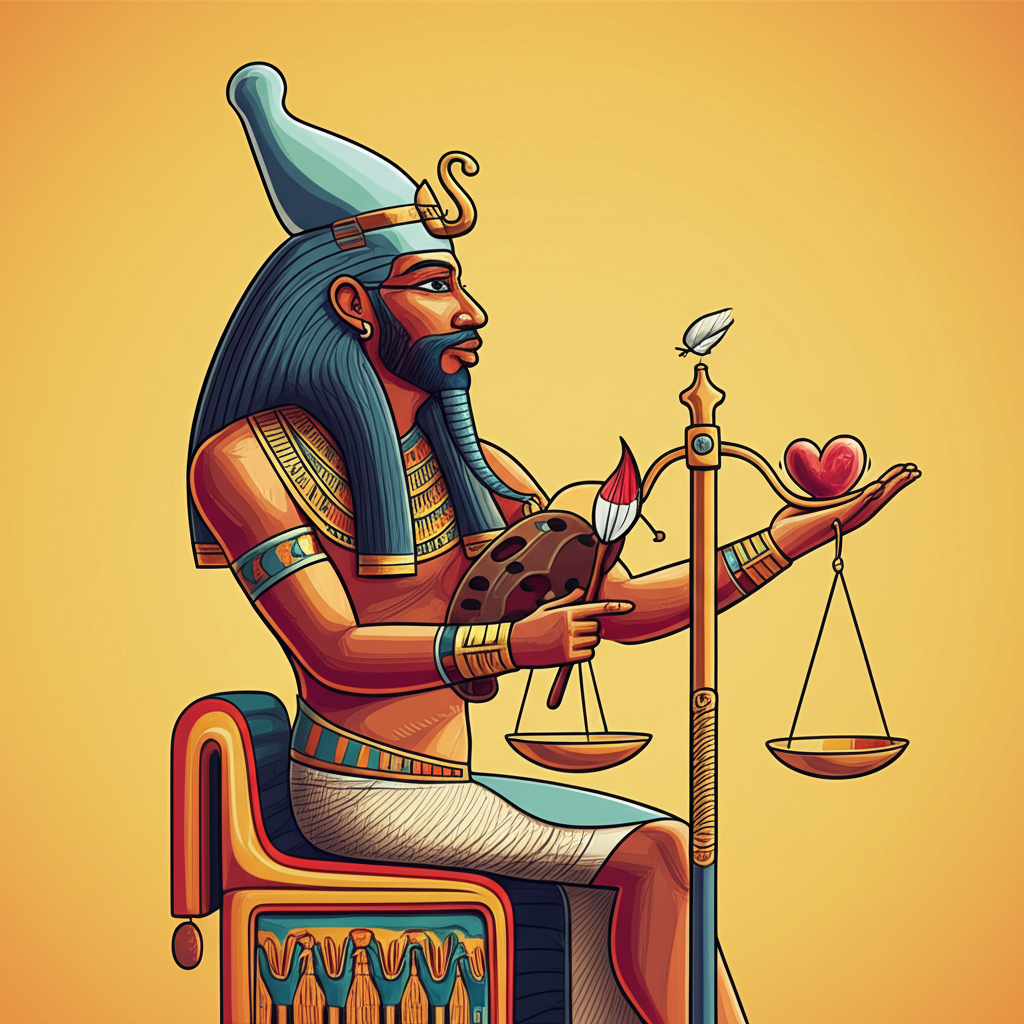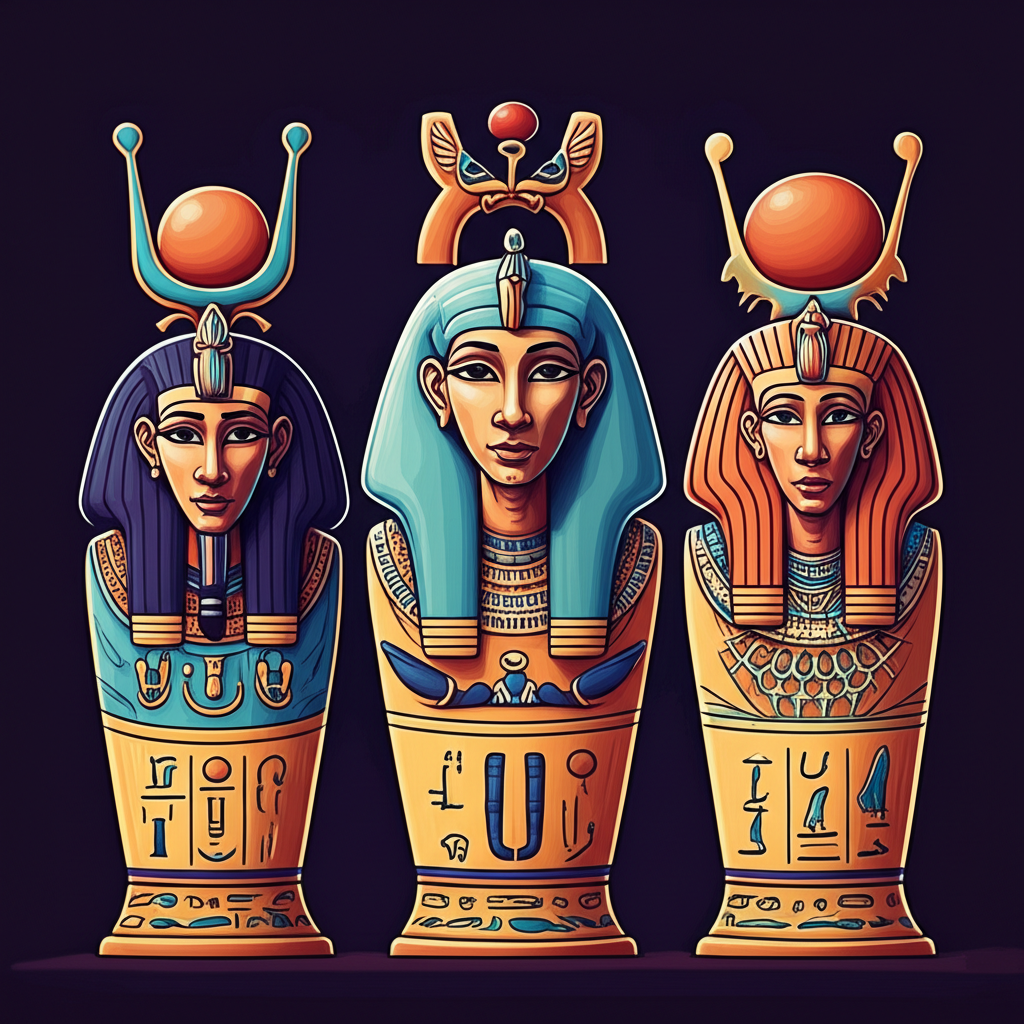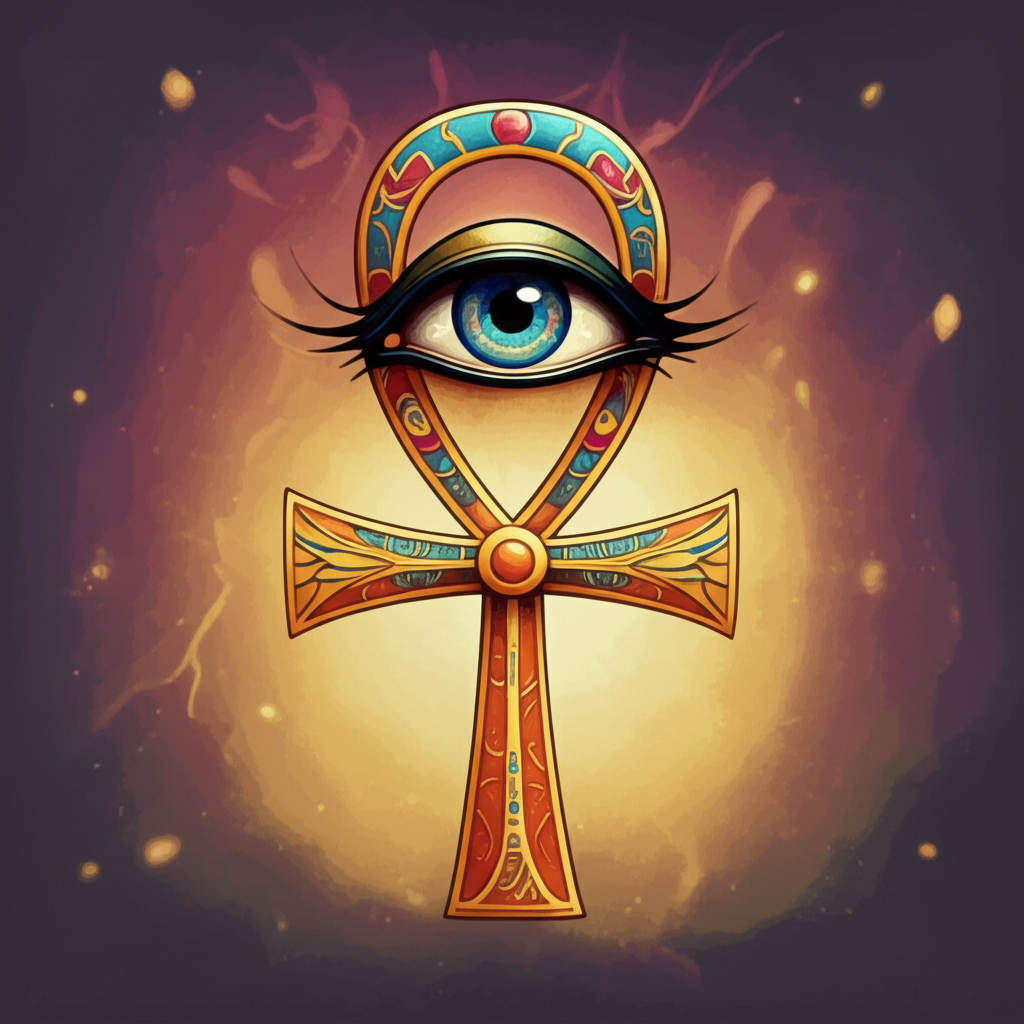
The sands of ancient Egypt, stretching back millennia, have been the cradle for a rich tapestry of myths and legends, stories woven to explain the cosmos, the cycles of life, and the very essence of existence. Among these narratives, one figure stands as a profound creator, a craftsman of unparalleled skill, and his story intertwines with a concept that resonates even today: the "War of the Weighing of the Heart." It is crucial to understand that these are traditional tales, born from the imagination and cultural understanding of ancient peoples, not accounts of historical events or divine truths. They offer a window into a worldview long past, a fascinating exploration of human thought and cultural expression.
The myth of Ptah and the Weighing of the Heart emerges from the heart of ancient Egypt, a civilization that flourished along the life-giving Nile River. This was a society deeply attuned to the rhythms of nature – the predictable inundation of the Nile, the unwavering march of the sun, the stark contrast between the fertile Black Land and the desolate Red Land. Their worldview was one of order, of maat, a cosmic principle of truth, justice, and balance, which permeated every aspect of life and their understanding of the divine. The Egyptians believed in a pantheon of gods and goddesses who governed the universe, each with their specific roles and responsibilities. The creation myths, in particular, were vital, providing a framework for understanding how the world came to be and humanity’s place within it. These stories were not mere fantasies but were deeply intertwined with religious practices, political legitimacy, and the very fabric of their society.
At the center of this particular narrative stands Ptah, the "Lord of the South Wall," often depicted as a mummified man, sometimes crowned with a skullcap, holding a sceptre. He is not merely a god but the primordial craftsman, the divine artisan who, through thought and word, brought the universe into being. Ptah is the embodiment of the creative force, the sculptor of reality, the silent architect whose ideas manifested as existence. His symbolic attributes speak volumes about his role: the sceptre represents authority and power, the skullcap suggests wisdom and the power of the mind, and his mummified form links him to the afterlife and the eternal. He is the ultimate craftsman, the one who shaped the very matter of the cosmos, from the grandest celestial bodies to the smallest grain of sand. His creative power was seen as inherent, existing before other gods, making him a foundational figure in the Egyptian pantheon, particularly in the theology of Memphis.
The "War of the Weighing of the Heart" is not a singular, epic battle in the traditional sense, but rather a metaphorical struggle, a cosmic balancing act that occurs in the realm of the afterlife. The narrative begins with the concept of death, a transition that the ancient Egyptians approached with a mixture of trepidation and meticulous preparation. Upon death, it was believed, the soul embarked on a perilous journey to the underworld, the Duat, where it would face judgment. This judgment was central to their understanding of justice and the continuation of existence.
In this post-mortem trial, the deceased’s heart, believed to be the seat of intellect, memory, and emotion, was brought forth to be weighed. The ceremony was presided over by Osiris, the god of the afterlife, and his divine court. However, it is Ptah, in his capacity as the supreme craftsman and observer of maat, who often plays a pivotal role in ensuring the accuracy and impartiality of this critical weighing. The heart was placed on one side of a great scale, while on the other rested the feather of Maat, symbolizing truth, justice, and cosmic order.
The tension of the "war" lies not in physical combat but in the intense scrutiny of a life lived. The heart, it was believed, would either be light, free from the burden of sin and wrongdoing, or heavy, weighed down by transgressions. Thoth, the god of wisdom and scribes, meticulously recorded the proceedings, ensuring every deed, every thought, was accounted for. Anubis, the jackal-headed god of mummification and the afterlife, often oversaw the physical act of weighing. If the heart was lighter than the feather of Maat, it signified a life lived in accordance with divine principles, and the soul would be granted passage to the eternal paradise, the Field of Reeds. However, if the heart was heavy, it would be devoured by Ammit, a fearsome composite creature with the head of a crocodile, the forequarters of a lion, and the hindquarters of a hippopotamus – a terrifying embodiment of divine retribution, condemning the soul to oblivion. Ptah, as the ultimate arbiter of creation and order, implicitly oversees this process, ensuring that the scales of justice, the very foundation of his creation, remain balanced. His presence, though often silent in the direct act of judgment, underscores the inherent order and fairness that he, as the creator, established.
The symbolism embedded within this narrative is profound. The Weighing of the Heart directly addresses the ancient Egyptian concept of maat. It represented their deep-seated belief in moral accountability and the consequences of one’s actions. The heart, as the repository of deeds, served as a tangible representation of a person’s character. The feather of Maat was the ultimate standard, a reminder that true existence was predicated on living a life of integrity and balance. Ptah’s role as the creator imbues this judgment with an almost inherent, cosmic fairness. His craftsmanship, his meticulous ordering of the universe, extends to the moral order of the afterlife. The "war" itself signifies the internal struggle within each individual to live a life worthy of eternal peace, a constant negotiation between desire and duty, between earthly temptations and the pursuit of divine harmony.
In the modern world, the myth of Ptah and the Weighing of the Heart continues to echo, albeit in transformed ways. While no longer a literal belief, its themes of judgment, morality, and the afterlife have found their way into literature, film, and video games. Depictions of trials and examinations of the soul are common tropes, often drawing on the symbolic weight of the heart and the concept of divine reckoning. In cultural studies, these narratives offer invaluable insights into ancient Egyptian societal values, their anxieties about death and judgment, and their sophisticated understanding of cosmic order. Scholars analyze these stories to understand the psychological and philosophical underpinnings of a civilization that sought to reconcile the material and the spiritual.
In conclusion, the tale of Ptah and the War of the Weighing of the Heart is a testament to the enduring power of human imagination and the need to make sense of existence. It is a cultural story, a product of ancient Egyptian minds seeking to understand the universe and their place within it. As Muslims, we recognize that only Allah is the true Creator and Sustainer, the ultimate source of all being and the sole arbiter of justice. Yet, by studying these ancient narratives, we gain a deeper appreciation for the diversity of human thought, the rich tapestry of cultural heritage, and the universal human quest for meaning and order. These stories, like intricate carvings on ancient monuments, invite us to reflect on the enduring themes of morality, consequence, and the eternal human desire for a just and balanced existence, passed down through generations as a testament to the power of storytelling.




